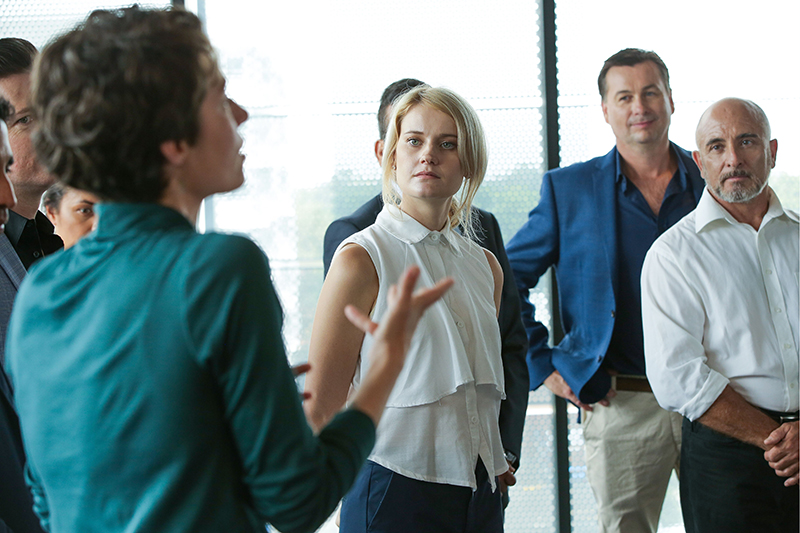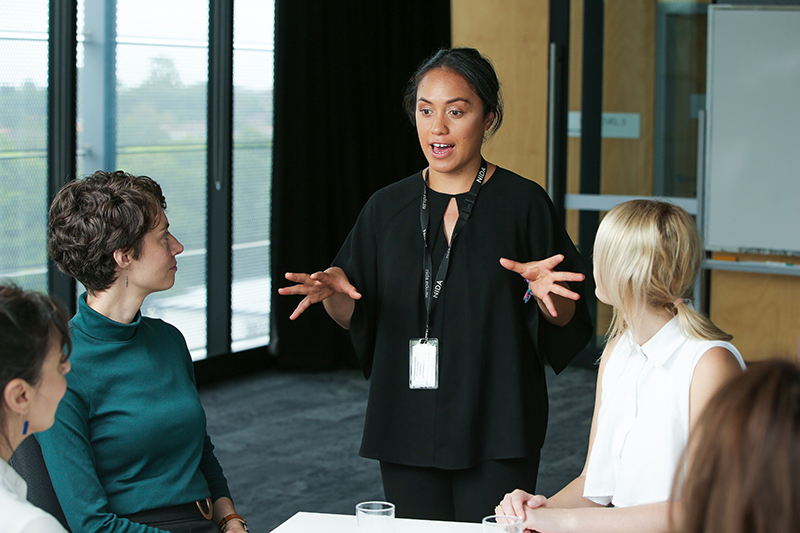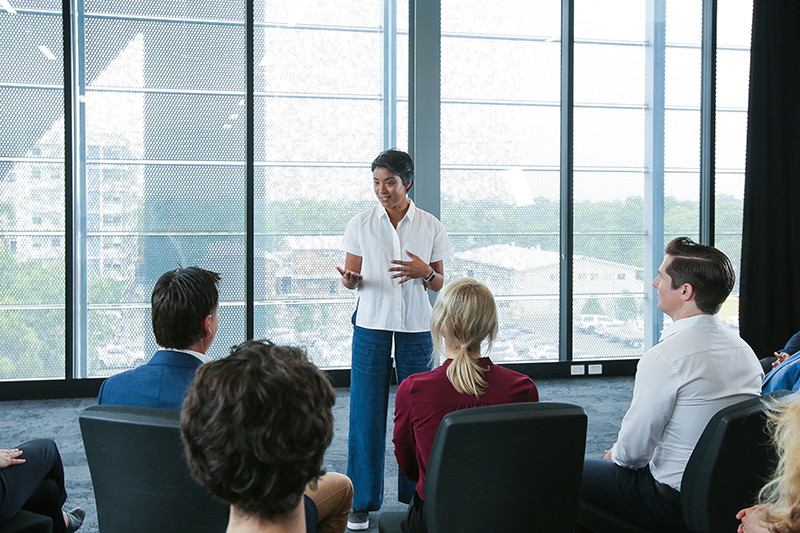
Now, when we’re working and socialising remotely, your voice has never been more important. In honour of World Voice Day, find out what your voice reveals about you and how it can help, or hinder, your career.
To get some insight into how our voice affects our professional life, we spoke with voice expert Nina Allinson, who works with NIDA’s corporate clients, rather than acting students. She says the issue is partly cultural: ‘As a society, we’ve forgotten how to breathe properly.
‘Over time, shallow breathing has become normalised, but that doesn’t mean it is normal. Shallow breathing is associated with our ‘fight or flight’ response. It’s tension.
‘When we breathe deeply, we reset our nervous system – but we’re so habituated to shallow breathing that breathing properly – from our diaphragm – feels abnormal!’
In terms of getting ahead at work, though, why should we care if our breathing is deep or shallow? So long as our lips aren’t turning blue, surely we’re getting the job done?
‘It matters if you want to lead or communicate anything with authority or presence. Shallow breathing gives you a thin and powerless voice. Deep breathing gives you the full, resonant voice that is congruent with qualities people seek in a leader: credibility, trustworthiness, warmth and authority.’

This is not the artificial, domineering authority that can be created through volume and speaking at a deeper pitch than is natural to you. ‘It’s an authority that is registered almost subconsciously. The foundation of voice work is about deep relaxation and awareness — letting go of habitual tension.’
This brings us to a hard truth: If you are sucking in your stomach, you’re not breathing properly – deeply, from your diaphragm. This disempowers your voice, as well as putting you in the state of physical tension that shallow breathing creates.
You must make a brutal choice: Let out your belly and breathe from your diaphragm, or never discover your true power. Nina says, ‘Give yourself permission to take up space – physically and metaphorically. You don’t have to look a certain way. You don’t have to suck your stomach in!’
Taking up space extends to taking up time, something NIDA’s corporate training calls ‘the power of pause’. If you are giving a presentation, you don’t have to fill every moment with words. ‘There’s a difference between an empty silence full of panic, and an empowered, pregnant pause: This is me, owning my time.
‘The same can be said for the pace at which you speak. If you’re giving a presentation and you’re rushing through your sentences, you’re throwing your points away. You’re not owning your message. The feedback we most often give our clients is slow down.’

Societally, part of how women make themselves smaller is often through voice: using softer, higher voices (than would be natural to an individual) and non-threatening ‘uptalk’.
The term might be unfamiliar, but ‘uptalk’ is familiar to everyone: delivering suggestions or even corrections with a rising inflection at the end, so that they sound like questions. This comes from a place of ‘not wanting to threaten’… but it also comes from a place of not giving yourself permission to ‘take up time and space, physically and metaphorically’.
While our bellies are hidden nicely out of the view of our webcams, this season of remote working is the perfect time to discover the ‘calm strength’ that comes from diaphragmatic breathing, and feel the authority that comes from empowering your voice.
‘Voice is a choice. We choose how we want to present ourselves, so don’t neglect the impact your voice makes – as a first impression, how you’re subconsciously perceived, and how you’re regarded as a professional.’
Photography: Maja Baska
Voice expert: Nina Allinson, Master of Fine Arts (Voice) and NIDA Corporate Course Manager
Own the screen: Unlock screen acting techniques to look, feel and sound more capable and in control in the virtual workplace
NIDA Corporate offers online training options using practical methods you can implement straight away to navigate the challenges of remote working, whatever your industry, company structure or individual needs. Find out more

